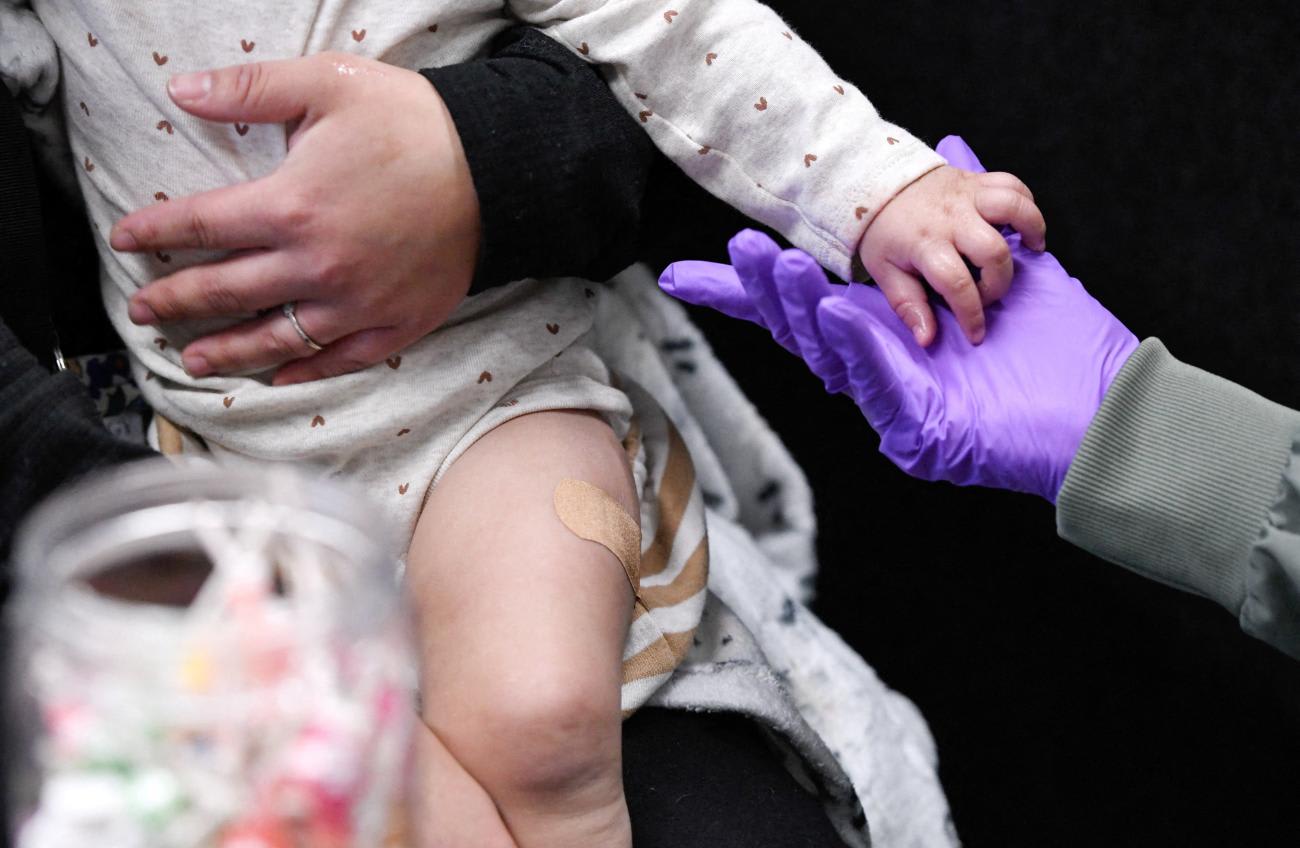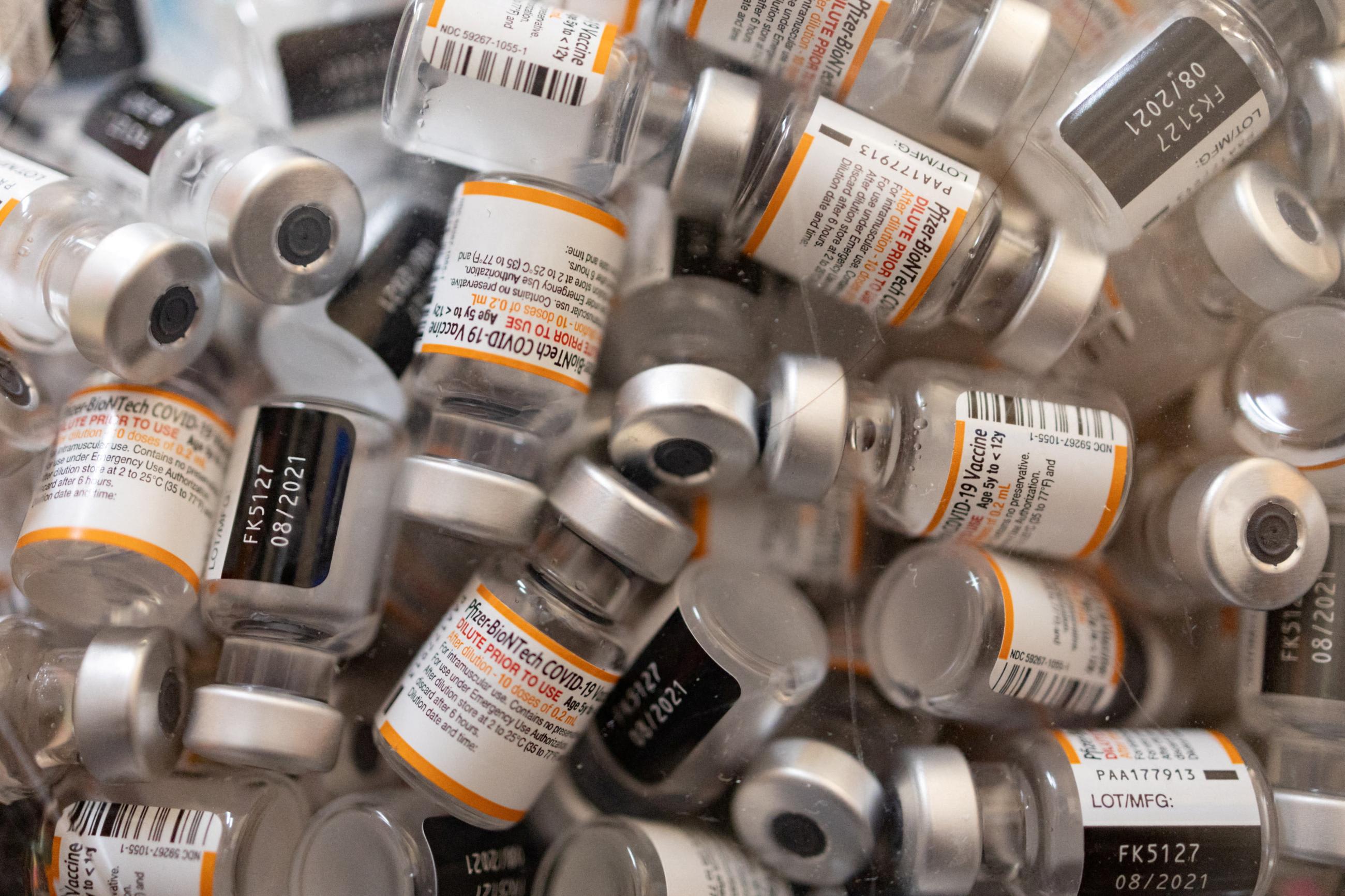On May 27, U.S. Health Secretary Robert F. Kennedy Jr. announced on social media that the United States would no longer recommend COVID-19 vaccines for healthy pregnant women or children six months and older, upending careful work by the Centers for Disease Control and Prevention's (CDC's) Advisory Committee on Immunization Practices (ACIP) to rigorously assess the safety and effectiveness of all vaccines. Two weeks later, Kennedy ousted all ACIP members, calling it a "clean sweep" to "reestablish public confidence in vaccine science."
Unfortunately, these efforts threaten to destroy the health protection network the United States has worked decades to build, and they will undermine confidence in vaccines and government deliberations.
Historically, the ACIP has reviewed complex epidemiological data on vaccines, the methods used to assess the effectiveness of vaccines, and threats posed by microbes—and then made recommendations to the CDC director. This process led to standard immunization schedules, insurance reimbursement, and coverage by the Vaccines for Children program, which provides approximately half of all childhood vaccines in the United States. Led by scientists and physicians who have dedicated their careers to understanding and fighting health threats, ACIP has been transparent, evidence-based, and open to public comment.
Kennedy's recent announcements bypass that process entirely. ACIP meetings take place in public and are streamed online, with public comment invited during each session. These meetings have been, until now, the gold standard for vaccine policy and are critical to ensure that advances in science and changes in microbes are reflected in updates made to ACIP vaccine recommendations. ACIP is scheduled to convene its next round from June 25 to June 26.
False statements such as these that undermine confidence in vaccine recommendations are dangerous
In his announcement, Kennedy justified the ACIP dismissals by alleging that 97% of its members had omissions on their conflict-of-interest forms, a false claim he also made during his January confirmation hearing. The statement twists the results of a 2009 audit of conflict-of-interest forms submitted in 2007 to all advisory bodies at CDC. Given increasing levels of vaccine skepticism, hesitancy, and refusal, false statements such as these that undermine confidence in vaccine recommendations are dangerous.
In March 2025, the CDC launched a web tool publishing potential conflicts of interest involving ACIP, including all disclosures made by 30 current and former members between 2000 and 2024. A post on X (formerly Twitter) about the conflict-of-interest website had garnered 28.4 million views as of this article's publication.
This year's committee had 16 voting members and a chair. Only one of the 17 members who Kennedy ousted had reported potential conflicts in their required disclosure. That individual is a distinguished pediatric infectious disease physician who has conducted vaccine trials, and she recused herself from the discussion and decisions on vaccines related to her research.
Delving into the specifics behind the conflicts of interest disclosed by the recently terminated and past ACIP members is valuable to understand what the real issues are. Overall, one recently dismissed and 29 prior members, who served since 2000, reported potential conflicts of interest, with 212 total disclosures listed. The total number of people who served in the past 25 years is unknown, but it is likely more than 100, meaning most members had no reported conflicts of interest.
Types of Potential Conflicts of Interest
Institution-based research funding. Of 212 total disclosures, 37.5% involved grants or sponsored research from vaccine manufacturers, even though such funding flows to their universities or research institutions rather than directly to individuals, their laboratories, or their research. For example, one former member's university received grants for Shigella vaccine research, although neither he nor his program received the funds. The money went to other labs at the university led by other researchers, but he still recused himself from cholera vaccine decisions potentially linked to the same company.
Data and safety monitoring boards. Serving on a data safety monitoring board involves rigorous review of clinical trials to ensure study integrity and safety, generally with limited financial benefit. These boards typically involve independent experts to monitor for potential harms to research participants. Twelve disclosures were of this nature. For example, one prior member served on a data safety monitoring board for meningococcal vaccine trials. This individual disclosed the potential conflict and abstained from voting on related products.
Small or indirect stock holdings. Of the 30 members who had disclosures, four who were no longer on the committee reported owning small quantities of stock, their acquisition dates often predating ACIP service. These members recused themselves from all decisions potentially related to relevant companies.

Past or current consulting work. Of the 30 members who had disclosures, nine reported that they had consulted or served on advisory boards, which in many cases ended before their ACIP participation. They commonly receive nominal honoraria. For example, one former member reported consulting on an investigational antiviral for cytomegalovirus, although not on a vaccine project.
Routine abstentions and recusals. Even if the connection is remote, members have recused themselves from votes or discussions to avoid any appearance of a conflict of interest. For example, in February 2024, one former member recused himself from the vote on adding the diphtheria/tetanus immunization to the Vaccines for Children's coverage list because he was working with MassBiologics on a diarrhea therapeutic product funded by the Bill and Melinda Gates Foundation. His work was not directly related to the diphtheria/tetanus vaccine; MassBiologics is a nonprofit manufacturer associated with the University of Massachusetts Chan Medical School and a manufacturer of a diphtheria/tetanus vaccine.
These disclosures show the diversity of past ACIP members' expertise in a wide range of health-related disciplines, which is necessary to set appropriate recommendations for the nation's immunization schedules.
Transparency, not Conflicts of Interest
The notion that ACIP members profited personally from their work is a fallacy, and Secretary Kennedy wielded this fallacy to dismantle the ACIP panel. The people who guided ACIP policies did not do so for financial gain. They volunteer their time and are pediatricians, researchers, parents, and public health professionals who served because they cared about protecting health. By disclosing conflicts at the start of each meeting and prior to each vote, ACIP ensured transparency at every step.
These disclosures were portrayed inaccurately as evidence of wrongdoing but actually reflected a process that had been protected against real or perceived conflicts of interest. ACIP has operated under particularly stringent requirements because its federal recommendations affect millions of people and have substantial financial implications. Anyone serving on ACIP could not have financial ties to vaccine manufacturers; to safeguard against decisions made for the financial gain of companies rather than health gain of Americans, committee members were required to disclose past affiliations and funding sources.
ACIP has until now followed best practices in conflict-of-interest avoidance. The committee details specific situations involving members or their immediate family that should trigger recusal, as well as circumstances presenting potential conflicts that should be disclosed. When a potential conflict existed, even if the link was remote, ACIP members withdrew from deliberations and abstained from votes to avoid even the appearance of impropriety.
Despite ACIP's strong disclosure practices, no system is perfect, and increasing transparency around the evaluation and management of conflicts would strengthen public understanding of the process. Unfortunately, the current administration went in the opposite direction, appointing members who have been paid witnesses in suits against vaccine manufacturers, who lack scientific knowledge about vaccines, and who have spread false information about vaccines.
Secretary Kennedy's decision to dismiss the current ACIP experts and replace them with people who will likely align with his nonscientific beliefs about vaccines will have far-reaching negative health implications for vaccine access, vaccine confidence, and the spread of vaccine-preventable diseases in the United States and around the world.













